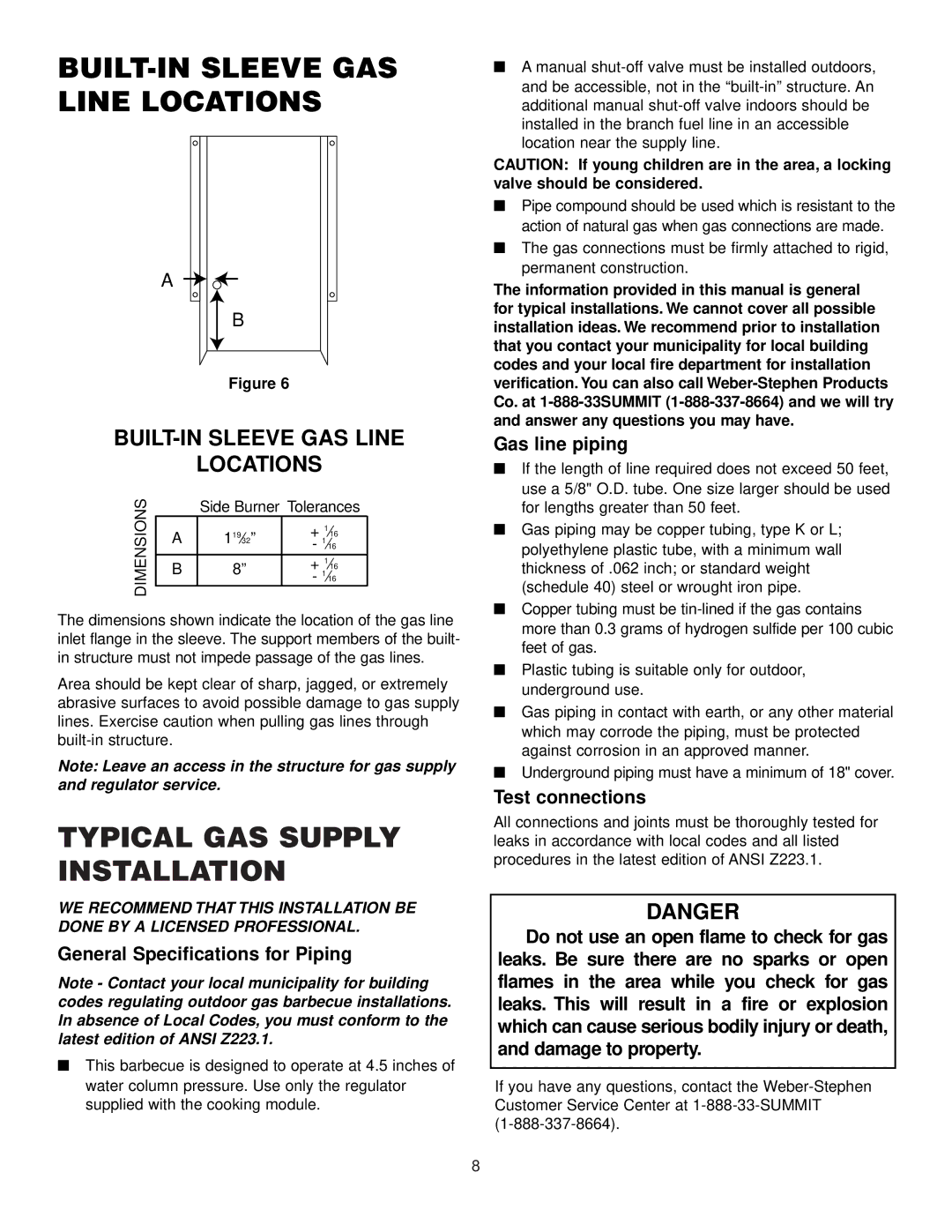Natural Gas Barbecues, Summit 475, Summit 675 specifications
The Weber Summit 475 and Summit 675 are two premium natural gas barbecues that exemplify high-performance grilling with advanced technology and thoughtful design. Both models cater to barbecue enthusiasts and professional griller's needs, bringing a combination of power, versatility, and convenience to outdoor cooking.The Weber Summit 475 features a robust gas grilling system with four stainless steel burners that deliver a total of 48,800 BTUs. This means it can easily handle high-heat cooking as well as delicate dishes requiring lower temperature settings. The innovative Flavorizer Bars are designed to capture drippings that create a delicious smoke flavor while preventing flare-ups, making the cooking experience both safe and flavorful. Additionally, the porcelain-enameled cooking grates provide excellent heat retention and create perfect sear marks on meats.
The Summit 675 takes grilling to the next level with six stainless steel burners producing an impressive 60,000 BTUs. Its more extensive cooking surface allows users to prepare large meals or entertain with ease. One of its standout features is the integrated rotisserie system, which includes a motorized spit to ensure even cooking for whole poultry or succulent roasts. This innovative feature enhances the versatility of the grill, allowing users to explore various cooking methods.
Both models are equipped with an advanced ignition system that ensures reliable starts every time. They also come with a side burner, perfect for simmering sauces or side dishes while grilling. Convenience is further enhanced with the built-in smoke box, allowing users to infuse their meals with rich, smoky flavors using wood chips.
Durability is a hallmark of the Summit series, with each barbecue constructed from high-quality materials designed to withstand the elements. The stainless steel finish not only lends a sleek, modern appearance but is also resistant to rust and corrosion.
Whether you choose the compact Summit 475 or the larger Summit 675, both models provide exceptional grilling experiences, combining advanced technology with user-friendly features. They embody the essence of Weber's commitment to quality and innovation, making them perfect additions to any outdoor kitchen. With their powerful performance, impressive cooking capabilities, and durable design, the Weber Summit natural gas barbecues truly elevate outdoor cooking to a new level.

